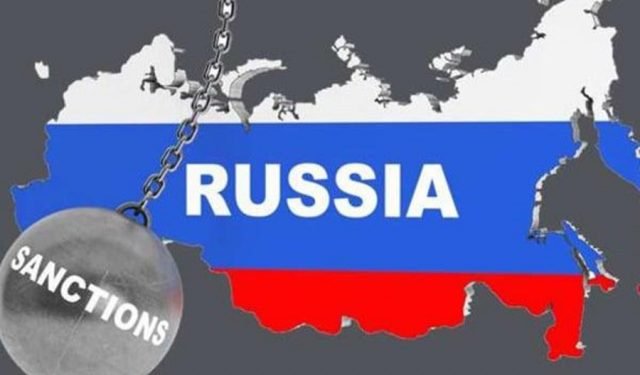Belgium (Brussels Morning Newspaper), In the intricate system of global geopolitics and economics, the cascading effects of sanctions reveal a nuanced tapestry of outcomes, not all of which align neatly with their intended objectives.
The situation post-Russia’s invasion of Ukraine offers a compelling study into this complexity. Contrary to what might be an intuitive expectation—that Russia would export less oil due to Western sanctions—the reality is starkly different. Indeed, Russia has managed to increase its oil exports, a development that prompts a deeper examination of the efficacy and unintended consequences of economic sanctions.
Before the invasion in January 2022, Russia exported approximately 1.3 million barrels of oil per day to Western countries. A year later, this figure plummeted to about 100,000 barrels daily. This significant drop can be attributed to the West’s concerted efforts to boycott Russian oil. However, this is only one side of the story.
The other side reveals a strategic pivot by Russia towards Asian markets, resulting in an increase of 1.6 million barrels daily to these regions during the same period. This information, sourced from the economic analysis in ESB and based on Bloomberg data, underscores a paradox where a boycott can simultaneously be deemed a success and a failure. The West has indeed succeeded in curtailing its direct consumption of Russian oil, yet Russia has found new markets, rendering the boycott’s intended impact less effective.
Countries such as China, India, Turkey, and the United Arab Emirates have emerged as major purchasers of Russian oil, albeit at lower prices than what the West previously paid. This shift poses a complex scenario where, on one hand, the West might view the reduced financial inflow to Russia as a victory. On the other hand, the undeniable reality remains that Russia continues to profit substantially from its oil exports.
The landscape of sanctions against Russia is vast and multifaceted. Beyond oil, the West has targeted a wide array of Russian products including steel, iron, coal, and cement, among others. The sanctions regime has been intensified and expanded multiple times, with the prospect of further restrictions looming on the horizon. These measures aim not only to constrict Russia’s economic capabilities directly but also to limit its access to crucial technologies and components, such as chips and electronics, that feed into its military-industrial complex.
However, the anticipated economic debilitation of Russia under the weight of these sanctions has not fully materialized. This resilience can be attributed to several factors, including the diversification of trade partners. While the EU, the U.S., Canada, and Japan have taken a staunch stance against importing Russian goods, many nations have not joined this boycott. This divergence has facilitated a swift reorientation of trade flows, with Asia not merely serving as a stopgap but as a burgeoning and strategic market for Russian exports.
The narrative extends beyond oil. The Russian automotive industry, initially battered by Western sanctions, has found solace in Chinese car imports. Similarly, Russia’s export of minerals to its new trade partners underscores a shifting global economic landscape where countries like China and India emerge not as mere alternatives but as formidable counterparts to the traditional Western markets.
Complicating the situation further is the circumvention of sanctions through indirect trade routes. Despite prohibitions, products such as aircraft parts for Russia’s fleet of Western-made airplanes still find their way into the country through third nations like Turkey and Tajikistan. This phenomenon of rerouted trade, evidenced by the burgeoning trade between China and Kyrgyzstan, which subsequently flows to Russia, highlights the challenges the EU faces in enforcing its sanctions effectively.
The adeptness of Russia in circumventing Western sanctions, particularly by pivoting its oil exports to Asian markets, casts doubt on the effectiveness of such measures. This scenario, where sanctions have led to unforeseen outcomes, prompts a pertinent question regarding future geopolitical tensions. Specifically, as China eyes reunification with Taiwan and faces the prospect of international sanctions, one wonders if it, too, could sidestep the economic repercussions. This consideration is crucial, as it underscores the potential limitations of sanctions in a world where economic interdependence and strategic maneuvering can dilute their intended impact.
Opinions expressed in the op-ed section are solely those of the individual author and do not represent the official stance of our newspaper. We believe in providing a platform for a wide range of voices and perspectives, even those that may challenge or differ from our own. As always, we remain committed to providing our readers with high-quality, fair, and balanced journalism. Thank you for your continued support.Sincerely, The Brussels Morning Team




